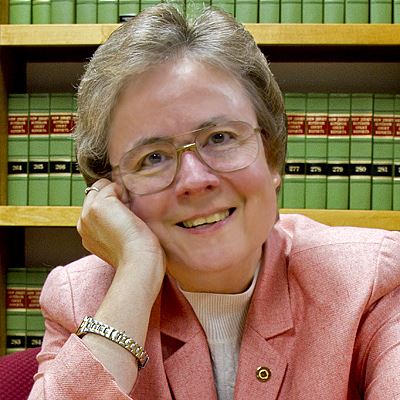The following announcement was written by the Board for Certification of Genealogists®:
FREE BCG-SPONSORED WEBINAR
“Name Changes and the Law”
by Judy G. Russell, JD, CG, CGL
Tuesday, May 16, 2023, 8:00 p.m. (EDT)
Names weren’t changed at Ellis Island, but in courts, legislatures, and elsewhere both formally and officially — and on the fly. As genealogists, we need to know why names were changed, and how those changes might be recorded if we want to have a chance at finding out what’s in a name.
 A genealogist with a law degree, Judy G. Russell is a lecturer, educator, and writer who enjoys helping others understand a wide variety of genealogical issues, including the interplay between genealogy and the law. She has a bachelor’s degree in political science and journalism from George Washington University in Washington, D.C., and a law degree from Rutgers School of Law-Newark, and holds Certified Genealogist and Certified Genealogical Lecturer credentials from the Board for Certification of Genealogists. She has worked as a newspaper reporter, trade association writer, legal investigator, defense attorney, federal prosecutor, law editor and, until her retirement, was an adjunct member of the faculty at Rutgers Law School. Judy is a Colorado native with roots deep in the American South on her mother’s side and entirely in Germany on her father’s side. Visit her website at www.legalgenealogist.com.
A genealogist with a law degree, Judy G. Russell is a lecturer, educator, and writer who enjoys helping others understand a wide variety of genealogical issues, including the interplay between genealogy and the law. She has a bachelor’s degree in political science and journalism from George Washington University in Washington, D.C., and a law degree from Rutgers School of Law-Newark, and holds Certified Genealogist and Certified Genealogical Lecturer credentials from the Board for Certification of Genealogists. She has worked as a newspaper reporter, trade association writer, legal investigator, defense attorney, federal prosecutor, law editor and, until her retirement, was an adjunct member of the faculty at Rutgers Law School. Judy is a Colorado native with roots deep in the American South on her mother’s side and entirely in Germany on her father’s side. Visit her website at www.legalgenealogist.com.
BCG’s next free monthly webinar in conjunction with Legacy Family Tree Webinars is “Name Changes and the Law” by Judy G. Russell, JD, CG, CGL. This webinar airs Tuesday, May 16, 2023, at 8:00 p.m. EDT.
When you register before May 16 with our partner Legacy Family Tree Webinars (http://legacy.familytreewebinars.com/?aid=8102) you will receive a confirmation email containing information about joining the webinar. Anyone with schedule conflicts may access the webinar at no charge for one week after the broadcast on the Legacy Family Tree Webinars website.
“We appreciate the opportunity to present these high-quality educational webinars,” said
President Faye Jenkins Stallings, CG. “At BCG, our purpose is to promote public confidence in
genealogy by supporting uniform standards of competence. These webinars help to achieve that
by providing educational opportunities to family historians of all levels of experience.”
Following the free period for this webinar, BCG receives a small commission if you view this or any BCG webinar by clicking our affiliate link: http://legacy.familytreewebinars.com/?aid=2619.
To see the full list of BCG-sponsored webinars for 2023, visit the BCG blog SpringBoard at https://bcgcertification.org/bcg-2023-free-webinars/. For additional resources for genealogical education, please visit the BCG Learning Center (https://bcgcertification.org/learning).
The words Certified Genealogist and its acronym, CG, are a registered certification mark, and the designations Certified Genealogical Lecturer and its acronym, CGL, are service marks of the Board for Certification of Genealogists®, used under license by board certificants after periodic evaluation.
 Latest News Articles
Latest News Articles Do you have an RSS newsreader? You may prefer to use this newsletter's RSS feed at:
Do you have an RSS newsreader? You may prefer to use this newsletter's RSS feed at: